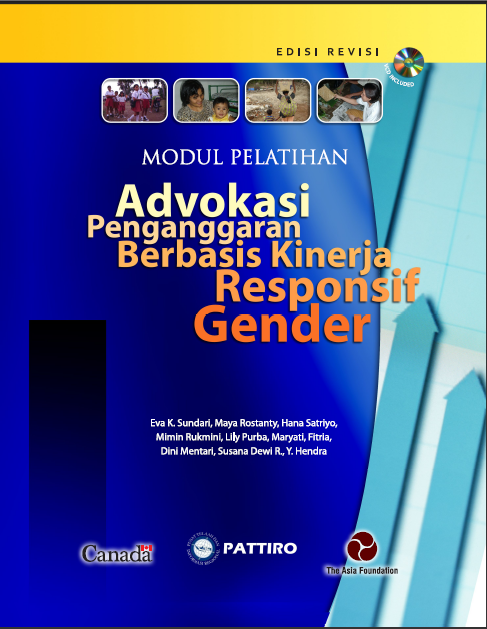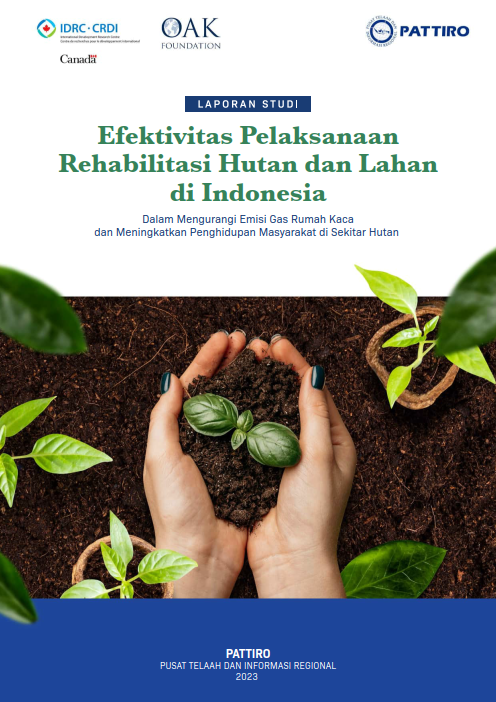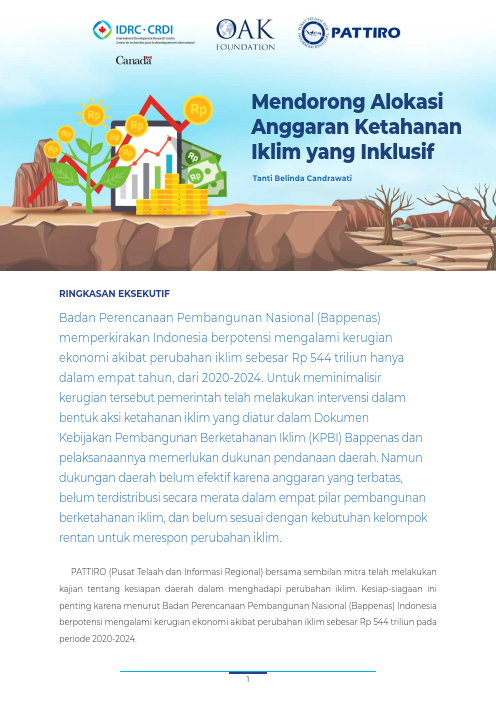 After 60 years of Indonesian independence, the welfare (health education, and the economy) women in Indonesia are still low. This is reflected in the Human Development Index (HDI) and Gender Development Index (GDT) Indonesia is still low. Similarly, the Gender Empowerment Measurement (GEM), Indonesia is not in a position encouraging.
After 60 years of Indonesian independence, the welfare (health education, and the economy) women in Indonesia are still low. This is reflected in the Human Development Index (HDI) and Gender Development Index (GDT) Indonesia is still low. Similarly, the Gender Empowerment Measurement (GEM), Indonesia is not in a position encouraging.
This marked the low level of welfare of Indonesian women, marginalization of the majority of women, the number of violence and harassment against women, including domestic violence, lack of women’s access to productive factors, the high maternal mortality rate (MMR), poor women’s access to services public a fair and quality, and other issue. Low level of welfare of women also led to the fragility of family life.
Therefore, to improve the welfare of women in Indonesia, should be pursued in ways territories and new networks to narrow the gender gap between men and women and to achieve gender equality and equity faster. One way is the proposed new governance in the budget more transparent, accountable, and more participatory and responsive to gender equality and justice.
The book in the form of training modules “Performance-Based Advocacy Gender Responsive Budgeting” is an attempt to multi-stakeholder that governance more attention to gender aspects in implementing policies. Thus, the revenue budget expenditures (budget), in this case at the district / city level, have an impact on gender equality.
We hope, this book is a ‘recipe’ or ‘blueprint’ for a social change. In addition, the book is a learning tool to explore the understanding and adapting the experience in issues related to gender, development policy planning, budgeting and implementation of the local context.
The book also comes right, when people are running the governance reform, so it will be very useful for development actors and decision-makers in the field of development and policy makers. We also believe that this book can spread the ideas of gender and budget to a wider audience.
***
Budgeting system in the era of decentralization in Indonesia has undergone some changes. The budget system also now refers to a performance-based budget that is expected to further optimize the use of funds, either build budgets more effectively and efficiently and encourage accountability of government to improve its performance. However, implementation at the local level is felt not right and a bias towards the needs and priorities of the needs of the poor, especially the women are marginal.
Besides, does not necessarily reduce the gender gap in the community. The budget allocation for education and health sector involves many groups of women, in which women and children are the biggest beneficiaries, for example, is still lacking even in some areas the number of allocations decreases. In general, the allocation for the purposes of local government costs such as salaries and operating expenses greater than the cost of public services.
Local governments now have the authority to manage a budget that was not previously owned in almost all sectors of development. Thus, it is very important that women’s perspectives and needs to be considered in the decision-making process and budget development. Lack of transparency in the government apparatus date, making budgeting is not sensitive to the inclusion of women as well as the prioritization of programs to meet the needs of the poor become less clear. Lack of accountability also encourages the use of budget deviations and ignore the budgetary impact on women and men equally.
We argue, women are often forgotten presence in public space, should be an active participant in various developmental processes in which resources are allocated, determined policies, and laws and regulations are set. Seeing the importance of the budget and its impact on the economy at large, it is increasingly important also to encourage more gender responsive budgets.
Of the various senses developed world on gender responsive budgeting, a fairly comprehensive understanding used by PATTIRO is with reference to the analysis of the impact of government expenditure and revenue on women and men equally. Gender responsive budgets are not separate budgets for women and is not intended to encourage an increase in the budget for special programs for women. Its main purpose is to encourage the government to make policies that can be adapted to existing resources and reallocated to reduce poverty and gender inequality.
By understanding and attention to the problems mentioned above, efforts to build good governance or good governance an important pillar in integrating a gender perspective in the budgeting process. Transparency, accountability and participation becomes important principles approach in this module are intended for multi-stakeholder efforts to build synergies in the budgeting process.
PATTIRO efforts as an organization that cares about the community and stakeholder participation in the budget-making, it should be appreciated especially in collecting experiences and training materials to enhance their understanding and skills in planning and gender responsive budgeting. One of the strengths of this module is a detailed discussion about what things should be considered in an effort gender interrogation into budget discussions.
Module as a reference certainly does not answer all the needs of the increasing skills and knowledge about the process of decision making and budgetary outcomes. Still other strategic efforts are needed, such as providing technical assistance to the local government sector, parliamentarians and other stakeholder; advocacy activities to create mechanisms and policies that lead to the establishment of gender-responsive budgets; training at the community level, especially women’s groups, which enabled them to participate in public decision-making.
Finally, we hope this book will be a reference for both the government officials, parliamentarians, civil society, government organizations, and women’s groups who want to actively participate in decision-making at the public level. Congratulations go to the team of writers and readers who will be expected to provide input necessary repairs to improve this module.




